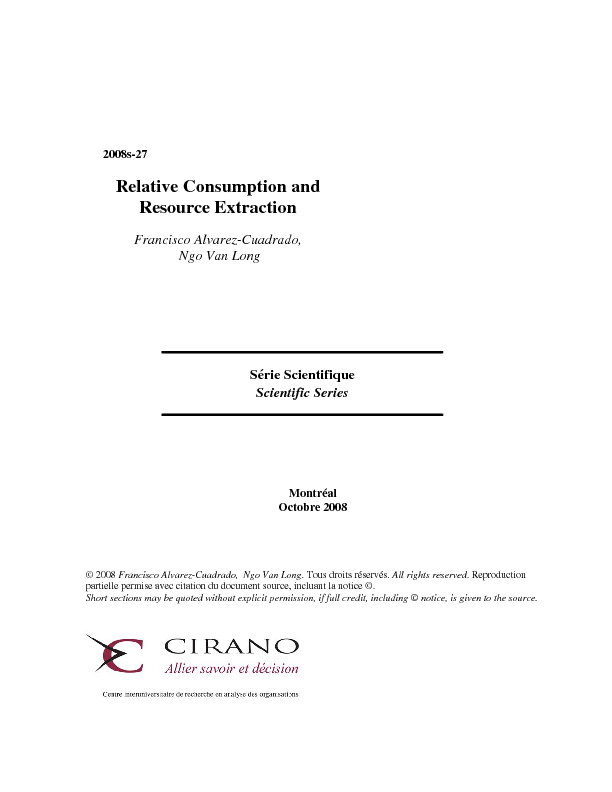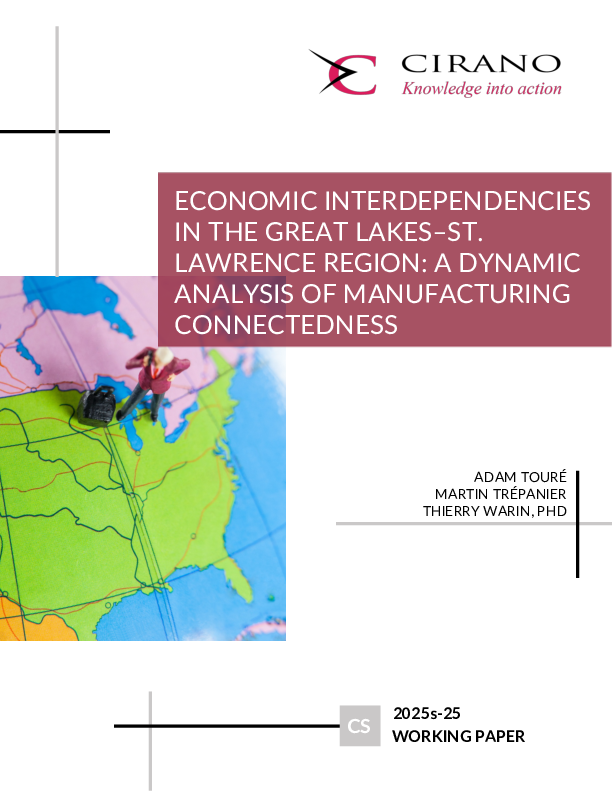Relative Consumption and Resource Extraction
This paper presents a simple model of resource extraction where preferences are household's preferences depend on relative consumption levels. We identify two dimensions along which consumption externalities distort the efficient extraction of resources: (i) the static trade-off between consumption and effort, and (ii) the dynamic trade-off between current and future consumption. In general, households over-exploit the natural resource stocks, resulting in steady state stocks lower than the efficient stocks of resources that would be chosen by a benevolent central planner. We propose a tax mechanism to induce the first best outcome.
[ - ]




